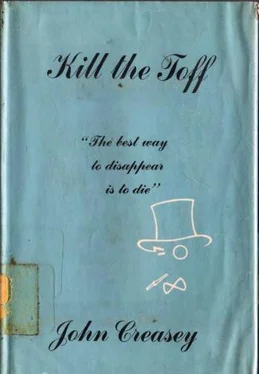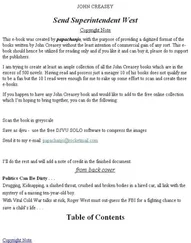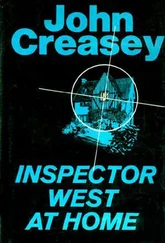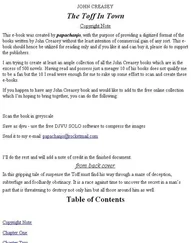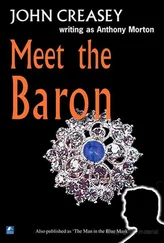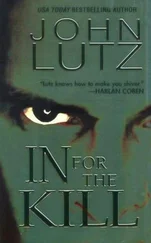“A straightforward murder wouldn’t have suited his purpose; there was a risk of the murderer being traced. So he tried to drive Mellor to suicide, planned to leave that “confession” note behind. He used Waleski for the job and tried to involve Clarissa. A silly thing but he wouldn’t see it that way. Clarissa had seen him, could identify him, so she had to die sooner or later. But why not add to the total of his father’s mental torment? Give me grounds for thinking Clarissa was also involved—as she was, unwittingly—and make a thorough job of it; and then have Clarissa murdered? More agony—while he himself would be sitting pretty.
“Only it didn’t work out like that.
“When it was known that Jim Mellor was safe and Clarissa’s evidence would prove he wasn’t the gangster, Geoffrey had only one thing to fall back on: his reputation in the East End. He saw that he could establish an impregnable position if he could get rid of me. I gave him the chance, convinced that he wouldn’t be able to resist it. I had two reasons for wanting to catch him, Bill. The ordinary reason, that I don’t like men of Geoffrey’s corruptness holding sway in the East End; another that I may tell you about one day.”
“Tell him now,” urged Clarissa, and went on without giving Rollison a chance to speak. “He thought I was involved, Mr Grice. He wanted to make me break down and confess or give myself away when I met Geoffrey again.”
Grice said: “Hrrrumph!”
Rollison smiled: “Thanks, Clarissa! Bill owes you apologies, too. I don’t think there’s much else, Bill. If Arden recovers enough, he’ll be able to confirm most of it, I think. You’ll get one of the gang to squeal too, although you won’t get much out of Geoffrey.”
“We’ll get enough to have him hanged,” Grice said. “Well, you’ll have to explain again in court—and so will Snub, about the cottage.”
“Gladly,” Rollison assured him.
Grice stood up from the desk and, as he did so, the door opened. The doctor came in, looking weary but smiling and rubbing his hands together.
“Believe it or not, he’s conscious—and asking for you, Mr Rollison.”
* * *
Rollison said to the old man: “Yes, it’s all known, all over. Tomorrow I’ll bring the boy
Mellor to see you.”
* * *
Rollison opened the door of his flat and Clarissa stood there, a vision in dark green with a wide-brimmed hat which set off her beauty to perfection. He took her hands and drew her into the hall. “Where’s Jolly?” she asked. “Out.”
“Discreet Jolly,” murmured Clarissa. “I was wrong about him. You would wither up without your Jolly.”
“Thanks!”
She laughed as they went into the living-room, stepped across to the trophy wall and took a sheet of pale blue notepaper and a drawing-pin from her bag. She fastened the paper on to the noose of the rope and stood back to admire the effect. “Do you like it?”
“I’ll treasure it.”
“I hope you will.”
“Rely on it. Clarissa, why didn’t you tell me about the letters; about Geoffrey?”
“Would you have believed in me then? I don’t think so. There was only one way to convince you.” She looked into his eyes, her own smiling but touched with hurt; or with longing. “Roily, I’ve tried to think clearly during the past three days, since it ended. I’ve some things straight. I want, I need, a quieter life—for a while. You thrive on excitement, sensation; it’s the basis of your life.”
“Proposal withdrawn?” asked Rollison gently.
“Postponed. Until, if ever, it comes from you to me.”
The End
